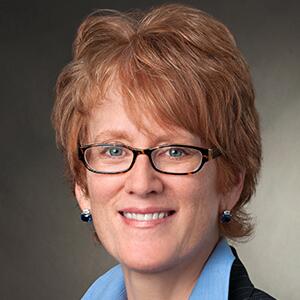State Bar Adopts Ethics Opinion Impacting Email Communications
On October 25, 2013, the North Carolina State Bar Council adopted a formal ethics opinion that impacts how North Carolina lawyers respond to emails with the “Reply All” option.
The formal opinion, titled “Copying Represented Persons on Electronic Communications,” addresses two specific inquiries regarding electronic communications with persons represented by opposing counsel. The first inquiry, and its answer, have not been controversial: a lawyer cannot respond to an email from opposing counsel by adding and thereby, copying the opposing counsel’s client on the email communication unless the lawyer receiving the email has consented to the communication to the client. Most lawyers would agree that this opinion is an appropriate application of Rule 4.2(a) of the Rules of Professional Conduct which provides that, “a lawyer shall not communicate about the subject of the representation with a person the lawyer knows to be represented by another lawyer in the matter, unless the lawyer has the consent of the other lawyer or is authorized to do so by law or a court order.” The application of this “no contact” rule seems straightforward when considering the question of whether a lawyer can initiate an electronic communication to a person represented by counsel.
The second inquiry, which does not evoke the same consensus among lawyers and addresses the “Reply All” feature, is:
Would the answer change if Lawyer A is replying to an electronic communication from Lawyer B in which Lawyer B copied her own client? Does the fact that Lawyer B copied her own client on the electronic communication constitute implied consent to a “reply to all” responsive electronic communication from Lawyer A?
The short answer from the Ethics Opinion is that it depends on a good faith analysis of the facts and circumstances whether consent to the communication can be implied. While the Ethics Opinion cites to the Restatement of the Law Governing Lawyers, as well as conclusions of ethics committees of the New York and California bars to support its position that consent may be implied rather than express, the Ethics Opinion cautions against relying on or creating circumstances in which consent is implied.
The Ethics Opinion applies Rule 4.2(a) with the following guidance:
- The fact that Lawyer B copies her own client on the electronic communication, standing alone, does not imply consent for Lawyer A to “Reply All.”
- It is prudent always to obtain express consent.
- It is prudent always to be clear with opposing counsel about the circumstances in which your own consent is express or should be implied. In this regard, the Ethics Opinion suggests that you forward your sent emails to your client rather than copying the client to avoid any implied consent. Another option advanced is an express statement in your emails that consent is not granted.
- At the outset of a matter, it is preferable for the lawyers to establish a procedure for determining whether a “Reply All” response is acceptable.
- The factors to be considered before a lawyer can reasonably imply consent include the following:
a) how the communication is initiated;
b) the nature of the matter (transactional or adversarial);
c) the prior course of conduct of the lawyers and their clients; and
d) the extent to which the communication might interfere with the client-lawyer relationship.
e) the purposes behind Rule 4.2 including this Comment to the Rule: “[Rule 4.2] contributes to the proper functioning of the legal system by protecting a person who has chosen to be represented by a lawyer in a matter against possible overreaching by other lawyers who are participating in the matter, interference by those lawyers with the client-lawyer relationship and the uncounseled disclosure of information relating to the representation.”
The State Bar Ethics Committee voted on October 24, 2013, to recommend the Ethics Opinion to the State Bar Council, which adopted the Ethics Opinion on October 25, 2013.
Karen Gledhill is a shareholder with Robinson, Bradshaw & Hinson and practices in their Charlotte office. She has a broad-based corporate practice with particular emphasis on joint ventures, mergers and acquisitions and other business strategic alliances. She co-chairs the firm’s Health Care Practice Group and is former chair of the Joint Venture Practice Group. She currently serves on the Business Council and Professionalism Committee of the North Carolina Bar Association.
(This article originally appeared in the October 2013 edition of Notes Bearing Interest, published by the Business Law Section of the North Carolina Bar Association. www.ncbar.org.)
About the Author


